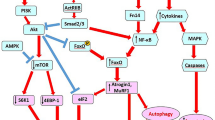Summary
Body wasting, i.e., cachexia, is seen in a variety of chronic illnesses, including also heart failure. Chronic heart failure (CCHF) is a complex syndrome affecting many body systems. There are a variety of interactions between the endocrine and the immune systems. The abnormalities seen in patients with cachexia in CHF, i.e., in patients with cardiac cachexia, are discussed to illustrate some links between these regulatory systems.
The available evidence suggests that cardiac cachexia is a multifactorial neuroendocrine and metabolic disorder with a poor prognosis. Comparing the features of cachectic and non-cachectic CHF patients to those of healthy subjects, it is mainly the cachectic patients who show raised plasma levels of catecholamines, cortisol, aldosterone and tumor necrosis factor-α, and the highest plasma renin activity. Patients with cardiac cachexia may also suffer from anabolic deficiency. The development of a condition of catabolic/anabolic imbalance is suggested as the key abnormality for the development of cardiac cachexia.
Similar content being viewed by others
Author information
Authors and Affiliations
Rights and permissions
About this article
Cite this article
Anker, S., Cicoira, M. Chronic heart failure and cardiac cachexia and links between the endocrine and immune systems. Z Kardiol 88 (Suppl 3), S018–S023 (1999). https://doi.org/10.1007/s003920050579
Published:
Issue Date:
DOI: https://doi.org/10.1007/s003920050579




